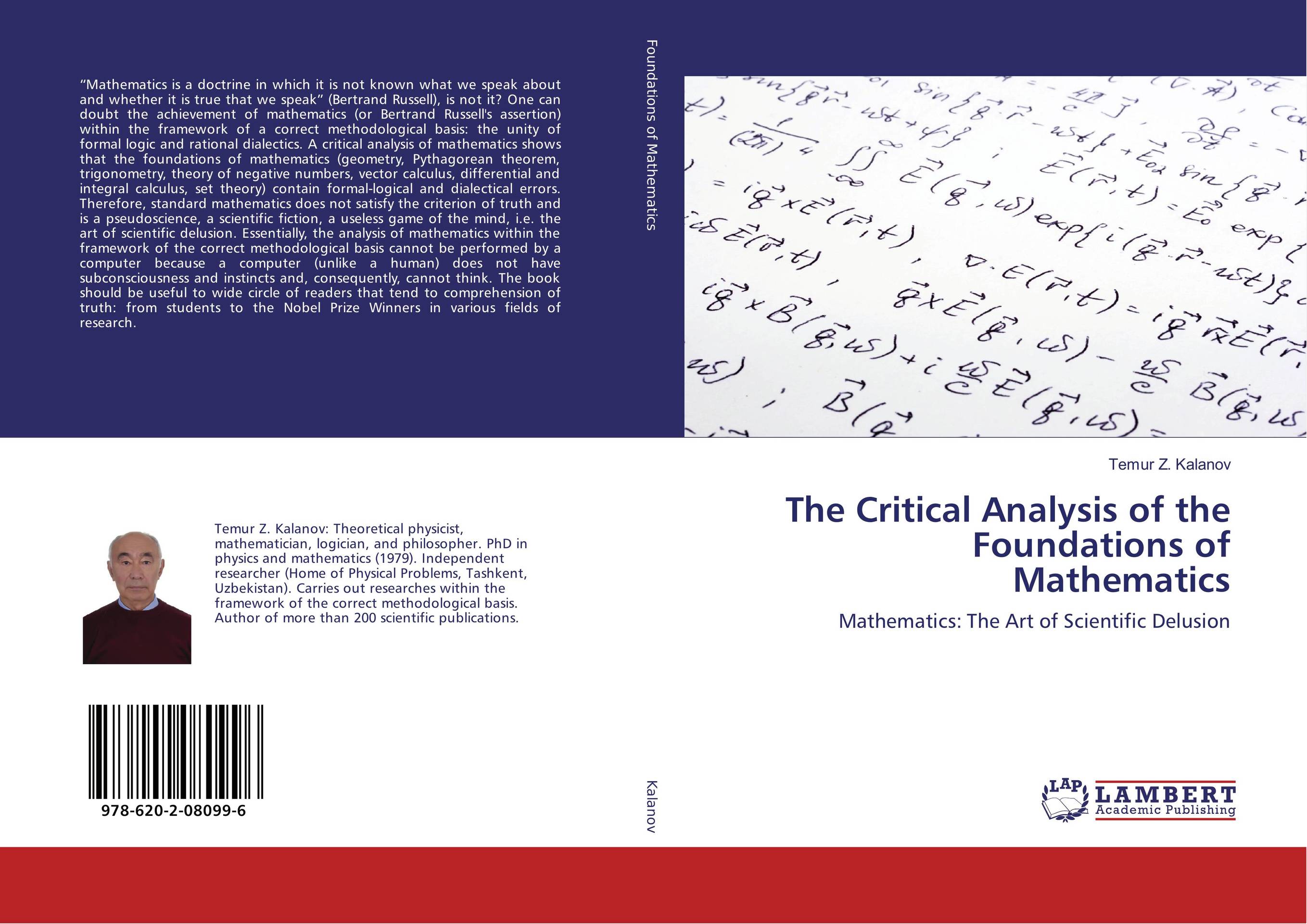| Поиск по каталогу |
|
(строгое соответствие)
|
- Профессиональная
- Научно-популярная
- Художественная
- Публицистика
- Детская
- Искусство
- Хобби, семья, дом
- Спорт
- Путеводители
- Блокноты, тетради, открытки
The Critical Analysis of the Foundations of Mathematics. Mathematics: The Art of Scientific Delusion

В наличии
| Местонахождение: Алматы | Состояние экземпляра: новый |

Бумажная
версия
версия
Автор: Temur Z. Kalanov
ISBN: 9786202080996
Год издания: 2017
Формат книги: 60×90/16 (145×215 мм)
Количество страниц: 256
Издательство: LAP LAMBERT Academic Publishing
Цена: 50438 тг
Положить в корзину
| Способы доставки в город Алматы * комплектация (срок до отгрузки) не более 2 рабочих дней |
| Самовывоз из города Алматы (пункты самовывоза партнёра CDEK) |
| Курьерская доставка CDEK из города Москва |
| Доставка Почтой России из города Москва |
Аннотация: “Mathematics is a doctrine in which it is not known what we speak about and whether it is true that we speak” (Bertrand Russell), is not it? One can doubt the achievement of mathematics (or Bertrand Russell's assertion) within the framework of a correct methodological basis: the unity of formal logic and rational dialectics. A critical analysis of mathematics shows that the foundations of mathematics (geometry, Pythagorean theorem, trigonometry, theory of negative numbers, vector calculus, differential and integral calculus, set theory) contain formal-logical and dialectical errors. Therefore, standard mathematics does not satisfy the criterion of truth and is a pseudoscience, a scientific fiction, a useless game of the mind, i.e. the art of scientific delusion. Essentially, the analysis of mathematics within the framework of the correct methodological basis cannot be performed by a computer because a computer (unlike a human) does not have subconsciousness and instincts and, consequently, cannot think. The book should be useful to wide circle of readers that tend to comprehension of truth: from students to the Nobel Prize Winners in various fields of research.
Ключевые слова: Artificial General Intelligence, Artificial Intelligence, COMPUTER SCIENCE, Dialectics, engineering, formal Logic, Foundations of Mathematics, General mathematics, Geometry, geometry , linguistics, Logic, mathematical analysis, Mathematical Physics, mathematics education, Metaphysics, number theory, Philosophy of Mathematics, Philosophy of Science, Physics, psychology, Set Theory, temporal logic, Theoretical Physics, Trigonometry, trisection of angle, multisection of angle, Pythagorean theorem, theory of negative number, differential and integral calculus, vector calculus, methodology of mathematics, general logic, logic in the philosophy of science, human intellect, artificial psychology, P versus NP problem, Millennium Problems (Clay Mathematics Institute)



